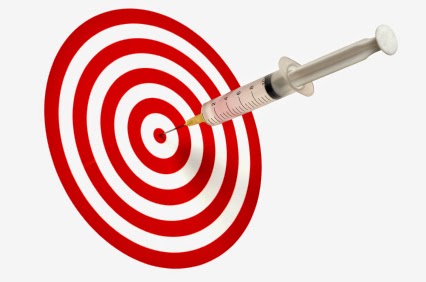 One of our attendings, Dr. Sylvia Betcher, PhD, MD gave an excellent presentation at our renal conference about genetic testing in renal diseases that she learned about at #KidneyWeek2015. There were so many good things I liked about her talk, that I want to share what I learned. On January 30th 2015, President Obama announced in his State of the Union address a Precision Medicine initiative. This will provide researchers in the biomedical field with the necessary tools to define preventive measures and treatment of disease by examining variability in genes, environment, and lifestyle of each patient. Precision Medicine relies on specific molecular and genetic information to classify a certain disease into subsets that allow consideration of focused therapies, which is currently being accomplished through GWAS (Check the #NephMadness genetic nephrology region bracket on GWAS here), whole gene sequence analysis via next generation sequencing (NGS) and VAAST (Variant Annotation, Analysis and Search Tool) which is used to identify damaged genes and their disease-causing variants in genome sequences. The president’s 2016 budget will provide $215 million to the various agencies including the NIH and FDA to accomplish his goals. The objectives of such initiative can be found here.
One of our attendings, Dr. Sylvia Betcher, PhD, MD gave an excellent presentation at our renal conference about genetic testing in renal diseases that she learned about at #KidneyWeek2015. There were so many good things I liked about her talk, that I want to share what I learned. On January 30th 2015, President Obama announced in his State of the Union address a Precision Medicine initiative. This will provide researchers in the biomedical field with the necessary tools to define preventive measures and treatment of disease by examining variability in genes, environment, and lifestyle of each patient. Precision Medicine relies on specific molecular and genetic information to classify a certain disease into subsets that allow consideration of focused therapies, which is currently being accomplished through GWAS (Check the #NephMadness genetic nephrology region bracket on GWAS here), whole gene sequence analysis via next generation sequencing (NGS) and VAAST (Variant Annotation, Analysis and Search Tool) which is used to identify damaged genes and their disease-causing variants in genome sequences. The president’s 2016 budget will provide $215 million to the various agencies including the NIH and FDA to accomplish his goals. The objectives of such initiative can be found here.
Most of the budget will go to cancer research and there is no mention of rare diseases or any particular hereditary or genetic disease. In the Nephrology world, are there any diseases in particular that need to be addressed? Yes, for instance Steroid Resistance Nephrotic Syndrome (SRNS), among many others. In this paper, a single-gene cause of SRNS was detected in 526 out of 1,783 families (29.5%), by examining 21 genes. The authors mentioned that screening of these genes is cost-effective and may avoid the undesirable side effects of steroids when a mutation is detected and potentially offer targeted therapy (for example with Coenzyme Q10 in cases of COQ2 nephropathy)
According to the NCBI Genetic Testing Registry as of August 2014, there were approximately 4,500 conditions for which genetic testing is available, many of which will have renal manifestations. Advantages to testing include providing specific therapies, allowing family counseling and to evaluate kidney donors in family members. Diseases that are being considered in Nephrology for genetic testing include: rare autosomal dominant interstitial nephropathies (UMOD, MUC1, REN), Syndromic and Polycystic Kidney Disease, Alport Syndrome and Congenital Anomalities of the Kidney and Urinary Tract (CAKUT). Additionally, I want to emphasize the fact that Genomics England (a company owned by the UK Department of Health) and Illumina (an American biotechnology company based in San Diego, California) have launched a $524M project to create a large genome database. Their plan is to sequence 100,000 whole genomes by 2017 focusing on rare diseases, cancer and infectious diseases. A nephrology consortium has been set up to provide renal patients for this ambitious project.
Let’s say we have screened our patients for congenital kidney diseases. Now what? We have to consider whether the results will influence any change in management, or perhaps we need to screen for extra-renal manifestations. I think that providing family counseling will definitively be helpful. It will also influence the decision on safety of kidney donation. Urine could be an excellent source of genetic information through DNA fragmentation which is a normal process in apoptotic cells to eliminate mutated, damaged or infected cells and is usually highly fragmented whereas in cancer cells the DNA maintains its integrity. So in conclusion, these are exciting times in Nephrology with precise genetic testing now a diagnostic option. Do you see yourself practicing Precision Nephrology in 10-20 years? Let us know what you think!

